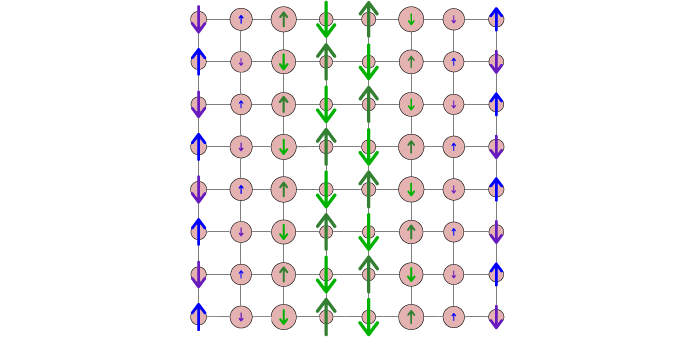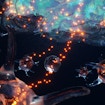Simons Collaboration on the Many Electron Problem Meets at Foundation

The Simons Collaboration on the Many Electron Problem held its first working meeting September 4 and 5 at the Simons Foundation. 29 scientists attended, including five guest speakers in addition to the collaboration’s members.
Organized by group directors Steven White of the University of California, Irvine and Emanuel Gull of the University of Michigan, the meeting focused on model systems that capture the essential difficulties of many-particle quantum mechanics while omitting much of the complexity of actual materials. Despite their simplicity, the models have resisted analytical solution and bringing them under numerical control has been a long-standing goal of the field.
Collaboration scientists and guest speakers presented and compared findings from a diverse spectrum of methods ranging from auxiliary field Monte Carlo and diagrammatic Monte Carlo to density matrix renormalization group and tensor network, also including multireference symmetry-projected variational calculations, conventional and enhanced dynamical mean field theory, density matrix embedding theory and linked cluster expansions. Intensive discussions before and during the meeting led to new insights into the strengths and limitations of the various theoretical approaches and have catalyzed new interactions between research groups.
The cross-comparison of results demonstrated at the meeting provides a firm base of understanding that will guide the collaboration’s development of next-generation methods for more realistic problems.
Top: Representation of the spatial dependence of spin (arrows) and charge (circles) modulations of the stripe state of the two-dimensional ‘t-J model,’ obtained from a state of the art density matrix renormalization group calculation performed to help provide high-precision benchmark results. Image courtesy of S. R. White. To find out more about this and related calculations visit the Simons Collaboration on the Many Electron Problem page or contact Professor White directly at [email protected].


